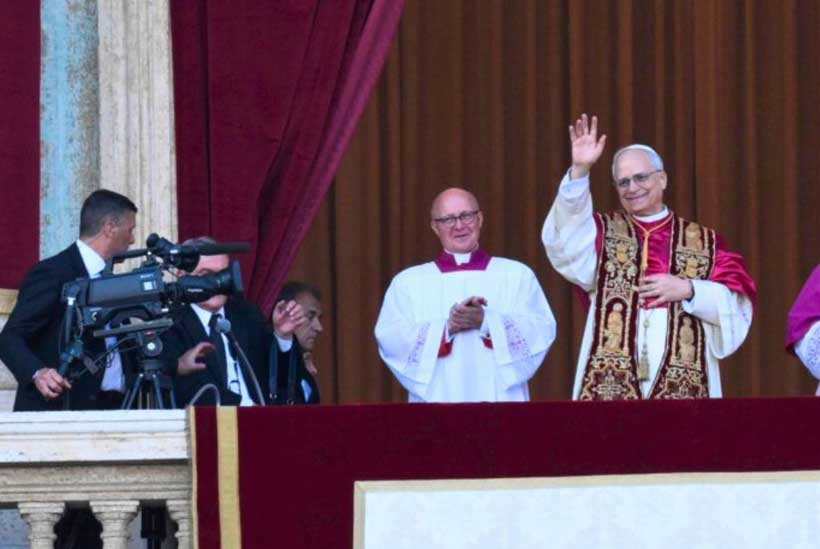On May 18, Pope Leo XIV officially began his papacy. Born Robert Prevost, he is the 267th pope of the Catholic Church and the first pope from the United States. It appears that the name “Leo” is chosen as a tribute to Pope Leo XIII, a 19th-century pontiff who shaped key Catholic doctrines and advocated for the marginalized.
At 69, Prevost, a Chicago native, holds dual citizenship in the U.S. and Peru. His missionary work largely took place in Peru, where he rose to prominence, eventually being appointed Prefect of the Dicastery for Bishops and Archbishop-Bishop emeritus of Chiclayo in 2023. This is one of the most significant roles within the Church, overseeing the selection of new bishops.
After Prevost was elected pope, both the U.S. President and Vice President offered their congratulations. President Donald Trump wrote on Truth Social: “It is such an honor to realize that he is the first American Pope. What excitement, and what a Great Honor for our Country. I look forward to meeting Pope Leo XIV. It will be a very meaningful moment!” United Nations Secretary-General António Guterres too congratulated the new pope, and noted, “Our world is in need of the strongest voices for peace, social justice, human dignity and compassion”. China’s foreign ministry also extended their congratulations to Prevost.
However, behind the praise and well-wishes lies an undeniable reality: expectations for the new pope are deeply divided. In fact, neither the left nor the right is particularly fond of the new pope, and that presents a serious challenge.
Soon after the election, public opinion fractured. Liberal voices criticized Prevost’s views on issues such as gender and sexual orientation, accusing him of failing to adopt an inclusive stance on these matters, topics central to Pope Francis’ papacy. Left-leaning outlets like The Guardian highlighted past statements from Prevost, including a 2012 speech where he suggested that Western media’s coverage of topics like abortion and homosexuality promoted trends contrary to Church teachings. Some critics even pointed to comments from his brother, who has made controversial remarks about marginalized groups and expressed anti-Democratic Party sentiments.
On the other side, conservatives and right-wing groups voiced discontent with the new pope’s positions. Supporters of Trumpism and anti-globalization movements found much to criticize, particularly after Prevost delivered his first address in Spanish rather than English, fueling accusations that he prioritized globalism over American concerns. American conservatives were especially unsettled by his consistent support for immigrant communities and his opposition to xenophobic populist policies. His outspoken views on issues such as the death penalty, COVID-19 vaccination, and his sharing of a post about prayers for George Floyd have drawn ire from right-wing groups who view these positions as politically charged.
Some conservative commentators have labeled him the “woke pontiff“, reflecting their perception that his views align more with liberal agendas than traditional Catholic teaching. Analysts suggest that “America First” proponents see Prevost’s positions on immigration, climate change, and social justice as an attempt to influence U.S. domestic policy through religious authority, undermining national sovereignty.
This tension reflects a deeper rift between the U.S. and Europe, one that extends beyond politics into conflicting cultural and religious values. The conflict has roots in the papacy of Pope Francis, whose clashes with figures like Donald Trump and Senator J.D. Vance prefigured similar tensions likely to emerge in Pope Leo XIV’s papacy. Vatican insiders have suggested that cardinals hoped Prevost would serve as a counterbalance to Trump and prevent further fractures within the American Church. While there was initial hesitation about electing a pope from a global superpower, many cardinals came to view Prevost’s American background as an opportunity to challenge Trump’s influence from within.
The Vatican’s future role on the world stage will likely depend on how it positions itself in global political discourse. The Holy See has evolved into the world’s largest transnational organization, transcending its traditional religious mission to engage in broader political and ideological debates. Historically, popes have commented on international affairs, but their influence was largely framed through a religious lens. Today, however, the Vatican increasingly seeks to shape global narratives, raising questions about its future role. Could it become a mini United Nations or a powerful ideological bloc in global politics? Both possibilities seem plausible, and the direction it takes could have significant implications.
From this vantage point, both the concerns of the global left and right may well be justified, as the Vatican continues to navigate an increasingly complex and politically charged world.
